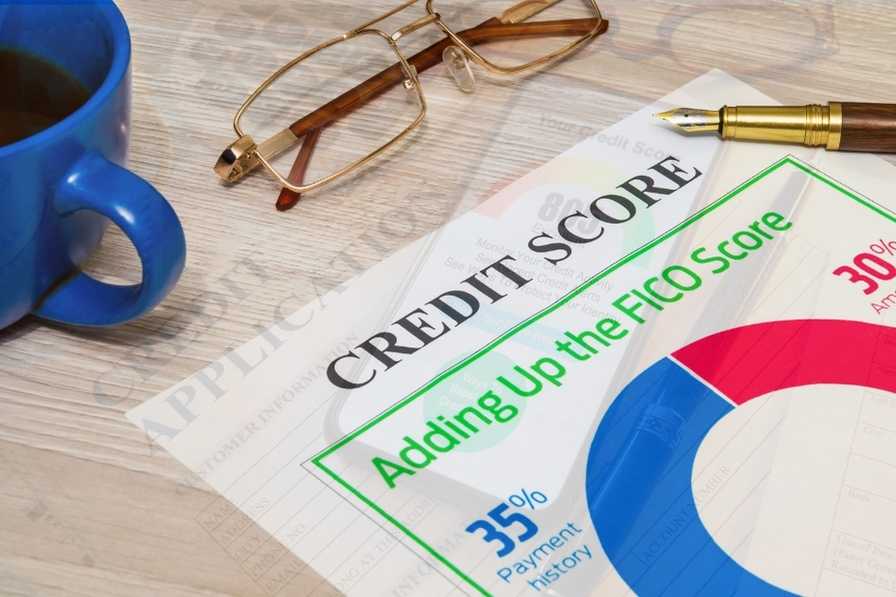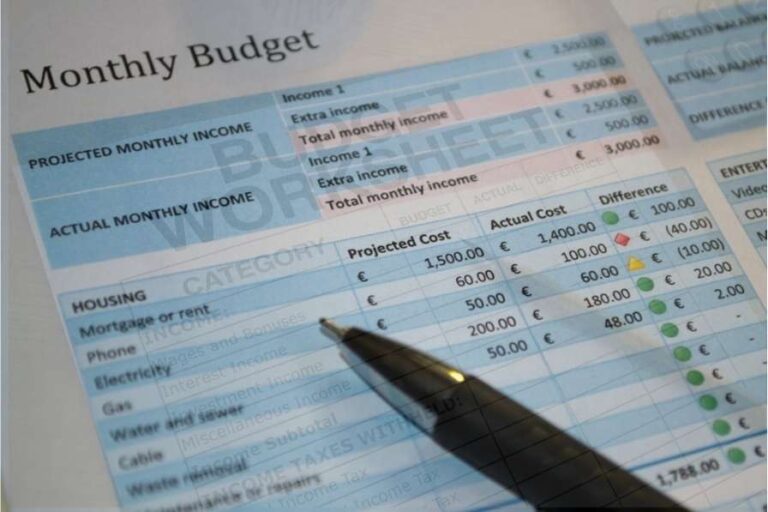How to Master the Basics of Credit Scores in 2025: A Step-by-Step Guide

credit scores In 2025, are a cornerstone of financial health. Your credit score is a three-digit number that tells lenders how likely you are to repay borrowed money. This score impacts your ability to secure loans, credit cards, and even rent an apartment. In 2025, credit scores still matter more than ever, influencing everything from interest rates to employment opportunities in some cases. A good credit score can help you save money on loans and qualify for better terms, while a poor score could limit your financial options and increase the cost of borrowing.
How is Your Credit Score Calculated? A Beginner’s Guide to the Factors that Affect Your Score
Your credit score is calculated based on several key factors:
- Payment History (35%): This is the most significant factor. It shows whether you’ve paid your bills on time, with late payments or defaults negatively affecting your score.
- Credit Utilization (30%): This refers to how much credit you’re using compared to your total available credit. Ideally, you want to keep this ratio under 30% to maintain a healthy score.
- Length of Credit History (15%): A longer credit history is seen as favorable since it provides more data about your borrowing habits.
- Types of Credit in Use (10%): The variety of credit types you use (e.g., credit cards, mortgages, car loans) can influence your score.
- New Credit (10%): Opening too many new credit accounts in a short period can hurt your score, as it suggests a higher risk of default.
The 3 Major Credit Bureaus: What Are They, and How Do They Impact Your Score?
There are three major credit bureaus in the U.S.: Equifax, Experian, and TransUnion. Each bureau collects and reports on your credit activity, so your score may differ slightly between them. Lenders often check your credit with one or more of these bureaus when making lending decisions. It’s important to regularly check your credit reports from all three bureaus to ensure accuracy and catch any errors.
2. Understanding Credit Score Ranges
Breaking Down Credit Score Ranges: What Does ‘Good’ vs. ‘Bad’ Really Mean in 2025?
Credit scores typically fall within the following ranges:
- 300-579: Poor – At this level, getting approved for most loans is difficult, and interest rates will be high.
- 580-669: Fair – You might be approved for some credit, but rates will be higher than average.
- 670-739: Good – This is the sweet spot for most lenders. You can qualify for loans with reasonable interest rates.
- 740-799: Very Good – You’ll have access to some of the best rates and offers available.
- 800-850: Excellent – This is the top tier, where you’ll enjoy the lowest interest rates and best credit offers.
How to Interpret Your Credit Score and What It Tells You About Your Financial Health
Your credit score reflects your financial habits, particularly in how well you manage debt. A high score means that you’ve demonstrated responsible credit usage over time, while a lower score indicates that you may have missed payments, used too much credit, or accumulated too much debt. Regularly monitoring your credit score helps you stay on top of your financial health and spot any potential issues early.
3. How to Improve Your Credit Score
10 Practical Tips to Improve Your Credit Score in 2025: Step-by-Step Guide
- Pay Your Bills on Time: Your payment history has the largest impact on your credit score. Set up automatic payments to avoid missing due dates.
- Reduce Your Credit Card Balances: Aim to use less than 30% of your available credit limit to improve your credit utilization ratio.
- Check Your Credit Report for Errors: Regularly review your credit reports for inaccuracies and dispute any discrepancies.
- Avoid Opening Too Many New Accounts: Each new credit inquiry can slightly lower your score. Only apply for credit when necessary.
- Keep Old Accounts Open: The longer your credit history, the better. Avoid closing old credit cards, even if you don’t use them.
- Diversify Your Credit Types: A mix of credit types, such as installment loans and credit cards, can benefit your score.
- Settle Any Outstanding Debts: Pay off collections or negotiate with creditors to settle old debts.
- Become an Authorized User: If a family member has good credit, being added to their account can help boost your score.
- Request a Credit Limit Increase: Increasing your credit limit can reduce your credit utilization ratio, boosting your score.
- Pay Down Debt: Consider using methods like the debt snowball or debt avalanche to pay off existing debts faster.
Common Mistakes That Can Hurt Your Credit Score and How to Avoid Them
- Missing Payments: A single missed payment can significantly damage your score.
- Maxing Out Your Credit Cards: High credit utilization is a red flag for lenders.
- Closing Old Accounts: Shortening your credit history can hurt your score.
- Ignoring Your Credit Report: Errors on your report can drag your score down, so review it regularly.
- Making Too Many Credit Inquiries: Each credit inquiry can impact your score, so avoid unnecessary applications.
The Best Strategies to Increase Your Credit Score Quickly in 2025
To boost your score quickly, focus on reducing credit card balances and paying off overdue accounts. If you have high-interest credit card debt, consider transferring it to a 0% interest balance transfer card. Paying off debt and reducing your utilization ratio can give your score a noticeable lift within a few months.
4. Current Trends in Credit Scores for 2025
How Are Credit Scores Evolving in 2025? New Trends and Tools to Watch
In 2025, credit scoring is becoming more nuanced. Lenders are increasingly using alternative data—such as rental payment history, utility bills, and even certain social media activity—to assess creditworthiness. Some companies are offering “buy now, pay later” (BNPL) services that report to credit bureaus, impacting credit scores for users who make timely payments.
What’s Changing in the Way Credit Scores Are Calculated in 2025?
The credit scoring models are becoming more sophisticated. Some models, like FICO 10T, place more emphasis on trends in credit behavior, such as how much your credit utilization has changed over time. This provides a more accurate picture of your financial habits and may help individuals with short-term credit dips improve their score faster.
The Role of AI and Big Data in Modern Credit Scoring: What Consumers Need to Know
AI and big data are playing a significant role in credit scoring. Some companies are now using artificial intelligence to assess consumer creditworthiness based on a wider range of factors. This may lead to faster credit decisions and potentially more personalized loan offers. However, consumers should be aware of how their data is being used and ensure their information is accurate.
5. Tools and Resources to Track and Improve Your Credit Score
Top Credit Score Tracking Tools for 2025
There are many tools available to help you monitor and improve your credit score in 2025:
- Credit Karma: Offers free access to your credit scores from TransUnion and Equifax, along with credit monitoring tools.
- Experian: Provides credit score tracking and offers identity theft protection services.
- Mint: A budgeting app that allows you to track your credit score alongside your financial goals.
- MyFICO: Provides access to your FICO scores and reports from all three major bureaus.
How to Use These Tools to Your Advantage
By using these tools, you can keep track of changes to your credit score and get alerts when your score changes. This can help you catch any issues early and take corrective actions if necessary. Most of these platforms also offer educational resources to help you understand your score and provide recommendations for improving it.
Conclusion
Mastering the basics of credit scores in 2025 is crucial for achieving financial stability and success. By understanding how credit scores are calculated, interpreting your score correctly, and using strategies to improve it, you can put yourself in a better financial position. With the right tools and resources, you can stay on top of your credit and ensure it’s working for you, not against you. Keep monitoring your score, avoid common mistakes, and stay informed on emerging trends to maintain a healthy credit profile in 2025 and beyond.






